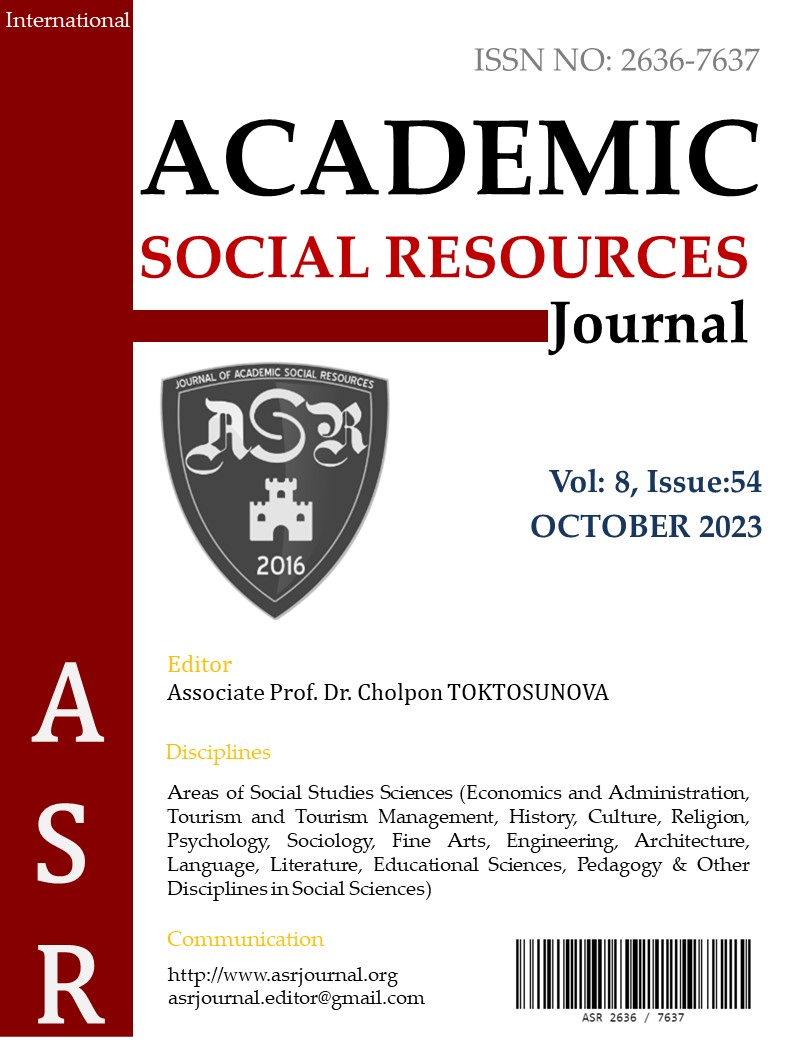Author :
Abstract
|
Bu çalışmanın amacı öğretmenlerin covıd-19 pandemisi döneminde uzaktan eğitimde yaşadığı sorunları öğretmen görüşlerine göre değerlendirilmesidir. Bu çalışmada nitel araştırma tekniklerinden fenomenoloji deseni kullanılmıştır. Araştırma için kolayda örnekleme yöntemi kullanılarak seçilen 13 öğretmen araştırmanın çalışma grubunu oluşturmuştur. Veriler yarı yapılandırılmış görüşme formu kullanılarak toplanmıştır. Verileri elde etmek için araştırmacı yüz yüze görüşmeler gerçekleştirmiştir. Veri analizinde kullanılmak üzere, görüşme formundan toplanan ham veriler metodolojik olarak işlenmiştir. Veriler içerik analizi kullanılarak değerlendirilmiştir. Araştırma sonuçları, pandemi döneminde öğretmenlerin uzaktan eğitimdeki zorluklarını ve bu zorluklarla başa çıkma çabalarını yansıtmaktadır. Teknolojik, pedagojik ve sosyal zorluklar öne çıkmaktadır. Öğretmenler, yeni dinamiklere uyum sağlama konusunda çaba gösterirken, özellikle teknoloji eksikliği, iletişim sorunları ve öğrenci motivasyonunu sağlama güçlükleri belirtilmektedir. Eşitsizliklerin artması ve hızlı geçişin getirdiği zorluklar da öne çıkan faktörler arasındadır. Öğretmenler, yaratıcı çözümler ve öğrenci odaklı stratejiler geliştirerek öğrenci etkileşimini güçlendirmeye çalışmışlardır. Sonuçlar, öğretmenlerin esneklik ve yaratıcılıkla zorlukları aşma çabalarını ve gelecekteki eğitim stratejileri için ipuçları sunmaktadır. |
Keywords
Abstract
|
The aim of this study is to evaluate the problems experienced by teachers in distance education during the COVID-19 pandemic according to teachers' views. In this study, phenomenology design, one of the qualitative research techniques, was used. The study group consisted of 13 teachers selected using convenience sampling method. Data were collected using a semi-structured interview form. The researcher conducted face-to-face interviews to obtain the data. The raw data collected from the interview form were methodologically processed for data analysis. The data were evaluated using content analysis. The research results reflect teachers' challenges in distance education and their efforts to cope with these challenges during the pandemic period. Technological, pedagogical and social challenges stand out. While teachers are struggling to adapt to the new dynamics, lack of technology, communication issues and student motivation are particularly cited. Increasing inequalities and the challenges of rapid transition are also prominent factors. Teachers tried to strengthen student engagement by developing creative solutions and student-centered strategies. The results show teachers' efforts to overcome challenges with flexibility and creativity and offer clues for future educational strategies. |





